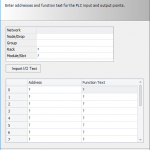Content

Financial accounting is the process of recording, summarizing and reporting the myriad of a company’s transactions to provide an accurate picture of its financial position. Accrual accounting provides a more accurate picture of a company’s financial position. However, many small businesses use cash accounting because it is less confusing.

The accrual based accounting definition, or accrual basis accounting, forms a method of recording financial transactions based on economic impact. Then, record costs when incurred, whether or not cash has actually been exchanged between the relevant parties. Contrast this method with cash basis accounting, which records transactions only when cash has been exchanged between the relevant parties.
What’s the Difference Between Cash Basis and Accrual Basis?
If you have plans of growing and expanding, using accrual accounting from the start can help eliminate the need to adjust as you move forward. It takes into account your most recent revenue and expenses that have been entered into your cash flow. You get an accurate and current breakdown of your financial standing. In addition, accrual method of accounting definition any companies with more than $25 million in revenue or that are publicly traded must use accrual accounting. So once your business reaches a certain stage, this accounting method is a requirement. Accrual accounting provides a more accurate view of a company’s health by including accounts payable and accounts receivable.
Full BioMichael Boyle is an experienced financial professional with more than 10 years working with financial planning, derivatives, equities, fixed income, project management, and analytics. After submitting your application, you should receive an email confirmation from HBS Online. If you do not receive this email, please check your junk email folders and double-check your account to make sure the application was successfully submitted.
Ways Marketing Can Help Improve the Customer Onboarding Process
He previously worked as a financial advisor and registered investment advisor, as well as served on the FINRA Small Firm Advisory Board. To record receipt of soccer ball inventory and establish a debt to Soccer Experts. Brainyard delivers data-driven insights and expert advice to help businesses discover, interpret and act on emerging opportunities and trends. As a result, an investor might conclude the company is making a profit when, in reality, the company might be facing financial difficulties. It’s beneficial to sole proprietorships and small businesses because, most likely, it won’t require added staff to use.
What is an accrual method of accounting?
Accrual basis accounting recognizes business revenue and matching expenses when they are generated—not when money actually changes hands. This means companies record revenue when it is earned, not when the company collects the money.
Cash accounting is a bookkeeping method where revenues and expenses are recorded when actually received or paid, and not when they were incurred. In contrast, accrual accounting uses a technique called double-entry accounting. When the consulting company provided the service, it would enter a debit of $5,000 in accounts receivable .
What Is the Difference Between Cash Accounting and Accrual Accounting?
The revenues a company has not yet received payment for and expenses companies have not yet paid are called accruals. Here are the four types of accruals typically recorded on the balance sheet when following the accrual accounting method. Cash basis accounting is a method where revenue is recorded when the cash is actually received; likewise, expenses are recorded when they are paid. Cash accounting does not acknowledge or track accounts receivable or accounts payable. For that reason, the method is best for small businesses that do not stock inventory.
- Cash and accrual accounting differ in a number of ways, but the main difference is when income and expenses are actually reflected in a business’s books.
- The accrual method is the more commonly used method by large companies, especially by publicly-traded companies, as it smooths out earnings over time.
- Although it’s the more complex of the two major accounting methods, accrual accounting is considered the standard accounting practice for most organizations.
- Accrual basis accounting is a method that measures the performance and position of an entity by recognizing transactions in the period when they occur regardless of when cash transfers.
- The consumer spending slump that follows the Christmas rush would make them appear unprofitable in the first quarter of the following year.
One of the differences between cash and accrual accounting is that they affect which tax year income and expenses are recorded in. An accounting system that doesn’t record accruals but instead recognizes income only when payment is received and expenses only when payment is made. There’s no match of revenue against expenses in a fixed accounting period, so comparisons of previous periods aren’t possible.
In contrast, accrual accounting does not directly consider when cash is received or paid. The cash method is the most simple in that the books are kept based on the actual flow of cash in and out of the business. Income is recorded when it’s received, and expenses are reported when they’re actually paid. The cash method is used by many sole proprietors and businesses with no inventory. From a tax standpoint, it is sometimes advantageous for a new business to use the cash method of accounting. That way, recording income can be put off until the next tax year, while expenses are counted right away.
Regardless, the cash flow statement would give a true picture of the actual cash coming in, even if the company uses the accrual method. The accrual approach would show the prospective lender the true depiction of the company’s entire revenue stream. Accruals help in demystifying accounting ambiguity relating to revenues and liabilities. The substantial difference lies in the time period to which costs and revenues are attributed. The US tax period is one year with a pre-determined beginning and end date. Most individuals and companies have a January 1 to December 31 tax year.
You can set up accounting software to read your bills and enter the numbers straight into your expenses on an accrual basis. And if you run a hybrid accounting system, smart software will allow you to switch between cash basis and accrual basis whenever you need. Despite the name, cash basis accounting has nothing to do with the form of payment you receive. The cash method is most-commonly used by sole proprietors and businesses with no inventory.
It records expenses when a transaction for the purchase of goods or services occurs. For example, consider a consulting company that provides a $5,000 service to a client on Oct. 30. The client received the bill for services rendered and made a cash payment on Nov. 25. Under the cash basis method, the consultant would record an owed amount of $5,000 by the client on Oct. 30, and enter $5,000 in revenue when it is paid on Nov. 25 and record it as paid.
What is an example of accrual accounting?
Examples of accrual accounting include sales and purchases made on credit, income tax expenses, prepaid rent, accrued interest, insurance expenses, electricity expenses, post-sales discounts, depreciation, and audit fees.

